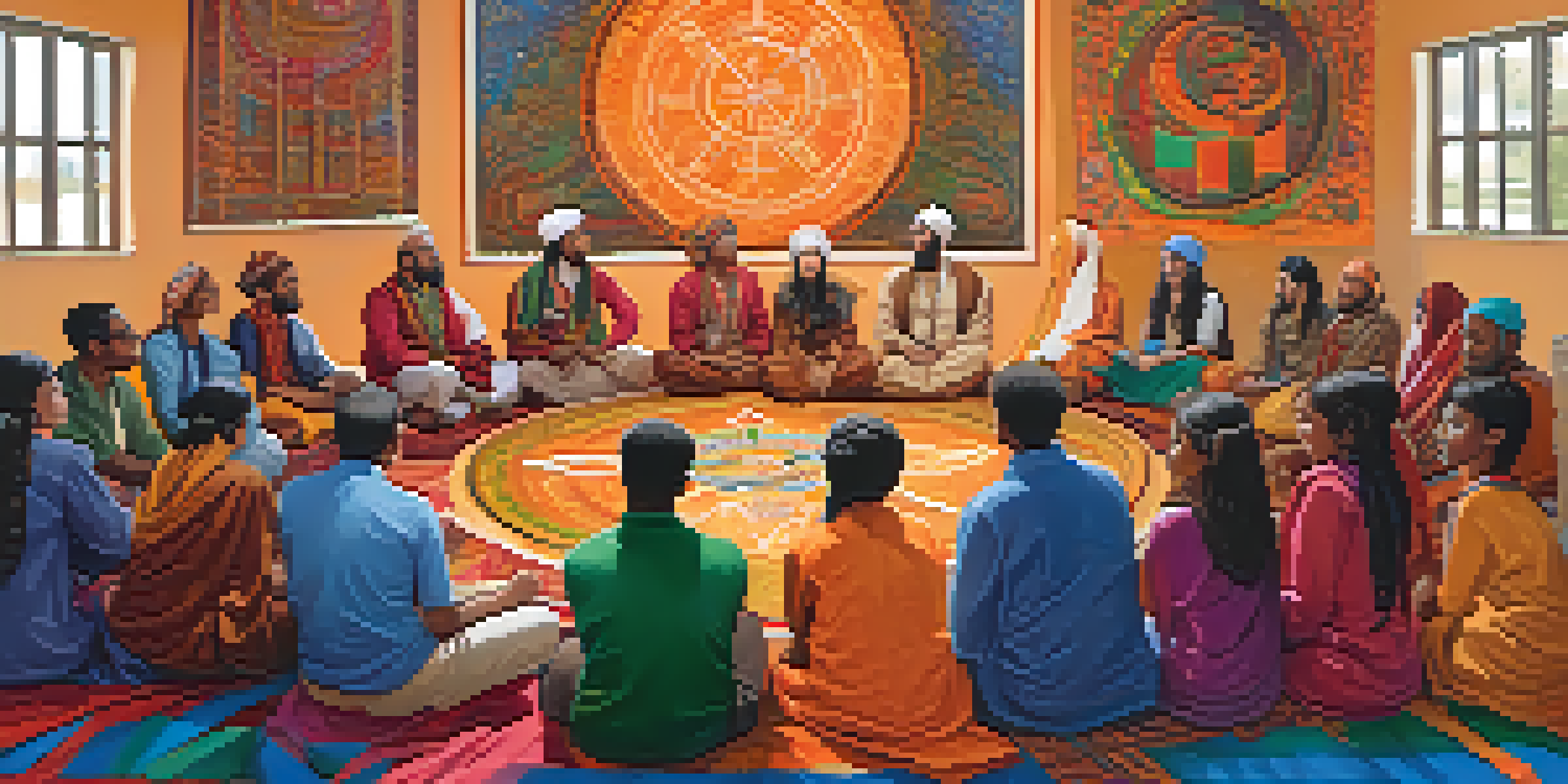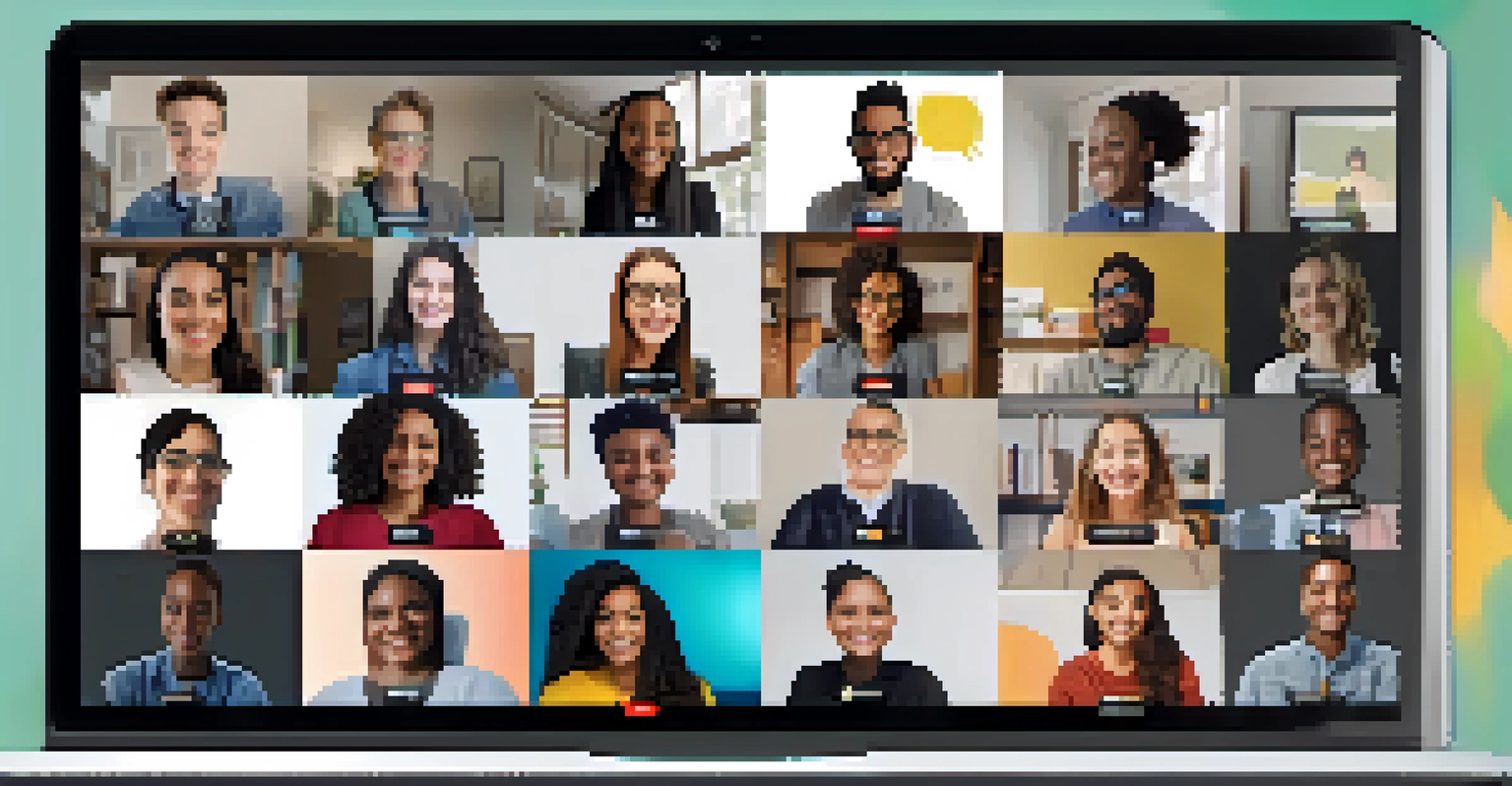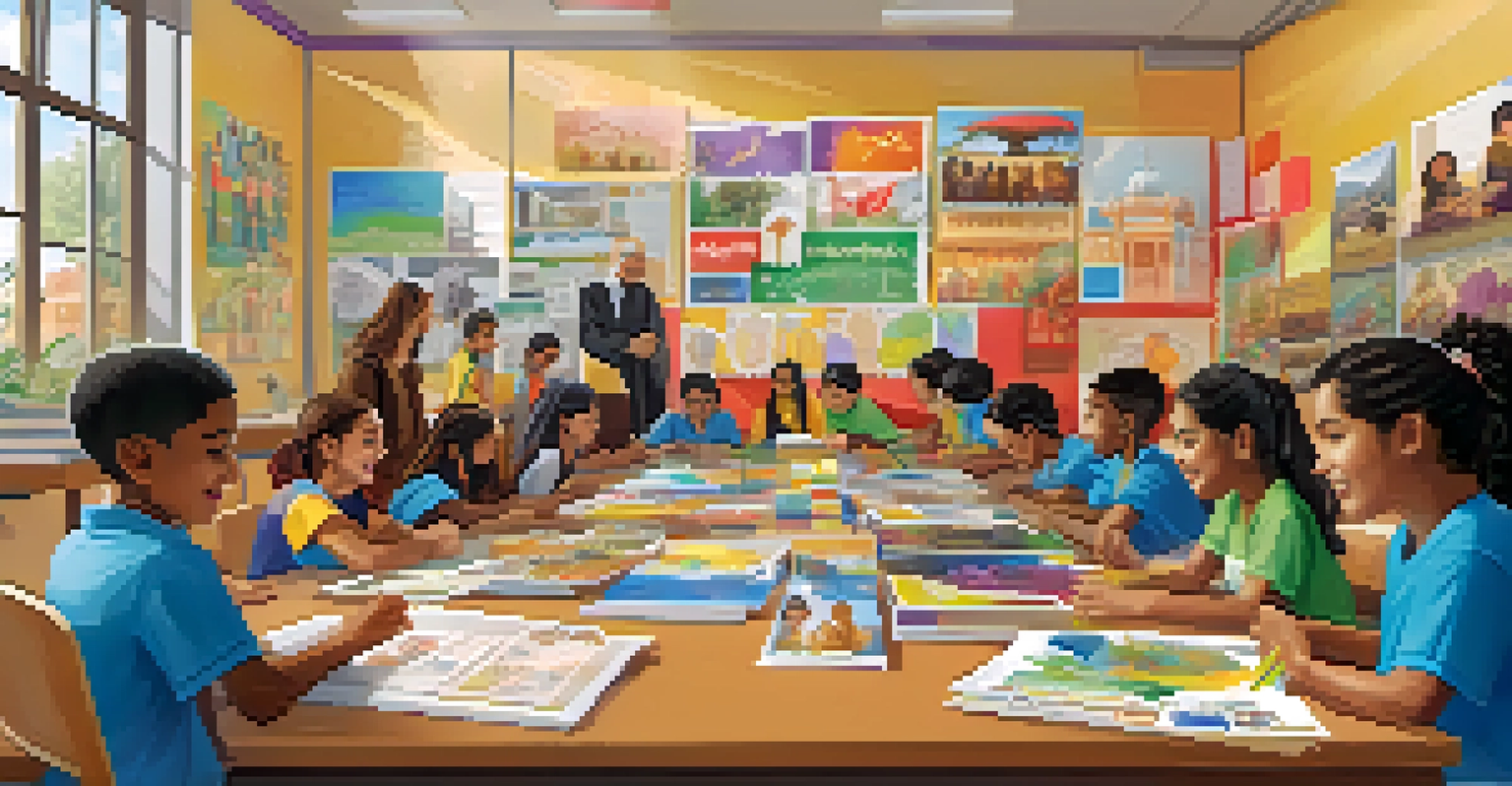Youth Engagement in Interfaith Dialogue for a Peaceful Future

Understanding Interfaith Dialogue and Its Importance
Interfaith dialogue is a conversation between people of different faiths aimed at fostering understanding and respect. In a world often divided by religion, these discussions can be a powerful tool for peace. They provide an opportunity for individuals to share their beliefs, explore common ground, and appreciate diverse perspectives.
In a time of destruction, create something.
For youth, engaging in interfaith dialogue not only enhances their understanding of different cultures but also prepares them to navigate a global society. It encourages empathy and compassion, qualities essential for building harmonious communities. By learning about others’ beliefs, young people can challenge stereotypes and reduce prejudice.
Related Resource
Moreover, interfaith dialogue can serve as a catalyst for social change. When youth come together to discuss their faiths and values, they can collectively address issues like discrimination, inequality, and conflict. This collaborative approach not only empowers them but also inspires action towards a more inclusive future.
The Role of Youth in Promoting Peace
Youth have a unique position in society; they are often seen as the leaders of tomorrow, but they can also be powerful agents of change today. Their energy, creativity, and fresh perspectives can challenge traditional narratives and inspire new solutions to old problems. Engaging in interfaith dialogue equips them with the tools to advocate for peace.

By participating in these discussions, young people can learn to articulate their beliefs while respecting others. This balance is crucial in conflict resolution, where understanding and compromise are key. When youth actively engage in dialogue, they model peaceful communication for their peers and communities.
Youth Empowerment through Dialogue
Engaging in interfaith dialogue equips young people with the tools to advocate for peace and understand diverse perspectives.
Furthermore, youth-led initiatives can create safe spaces for dialogue, encouraging others to join the conversation. Whether through social media campaigns, community events, or educational programs, their involvement can amplify voices that are often marginalized, fostering a culture of peace and acceptance.
Creating Safe Spaces for Dialogue
For interfaith dialogue to be effective, it’s essential to create safe, welcoming spaces where participants feel comfortable sharing their beliefs. These environments allow for open discussions without fear of judgment, fostering trust among participants. Schools, community centers, and online platforms can serve as excellent venues for these interactions.
The greatest weapon against stress is our ability to choose one thought over another.
Facilitators play a crucial role in maintaining a respectful and constructive atmosphere. They can guide discussions, ensuring that everyone has a chance to speak and that differing opinions are treated with dignity. This structure encourages active listening and helps participants find common ground despite their differences.
Related Resource
In addition to physical spaces, creating a culture of openness and curiosity is vital. Encouraging questions and exploration of beliefs can lead to deeper understanding and connection. When youth feel safe, they are more likely to engage authentically, creating meaningful dialogue that can lead to lasting peace.
The Impact of Technology on Interfaith Dialogue
In today’s digital age, technology plays a significant role in facilitating interfaith dialogue among youth. Social media platforms, blogs, and forums provide spaces for discussions that transcend geographical boundaries. This connectivity allows young people to engage with diverse perspectives and share their experiences with a broader audience.
However, while technology can foster dialogue, it can also perpetuate misinformation and division. It’s essential for youth to develop digital literacy skills, enabling them to discern reliable sources and engage respectfully online. By being responsible digital citizens, they can contribute positively to the narrative around interfaith relations.
Safe Spaces Foster Open Conversations
Creating welcoming environments for dialogue encourages participants to share their beliefs without fear of judgment.
Additionally, virtual events and webinars can bring together youth from different faith backgrounds who may not have otherwise met. These online interactions can serve as powerful platforms for collaboration, allowing participants to create initiatives that promote peace and understanding across communities.
Educational Programs Supporting Interfaith Dialogue
Educational institutions play a vital role in promoting interfaith dialogue among youth. By incorporating interfaith studies into curricula, schools can teach students about the world's diverse religions and cultures. This knowledge fosters understanding and respect, laying the groundwork for productive conversations.
Workshops, seminars, and extracurricular activities centered around interfaith dialogue can enhance students' skills in communication and conflict resolution. These programs often encourage collaborative projects that require students to work in diverse teams, further enhancing their appreciation for different perspectives.
Related Resource
Moreover, partnerships with local religious organizations can provide students with real-world experiences in dialogue. Engaging with community leaders can help youth understand the practical applications of interfaith discussions and how they can contribute to societal peace-building efforts.
Success Stories of Youth-led Interfaith Initiatives
Across the globe, there are inspiring examples of youth-led initiatives that have successfully fostered interfaith dialogue. For instance, programs that bring together young people from different faith backgrounds have led to community service projects, cultural exchange events, and peace-building campaigns. These initiatives demonstrate the power of collaboration in addressing social issues.
One notable success story is the 'Youth Interfaith Network' in various countries, where young people come together to tackle local challenges through interfaith cooperation. By uniting their voices, they have initiated discussions on pressing topics like climate change, social justice, and mental health, proving that faith can be a unifying force.
Technology Bridges Interfaith Gaps
Digital platforms enable youth to connect and engage with diverse perspectives, enhancing interfaith dialogue beyond geographical boundaries.
These stories not only inspire other youth to engage in interfaith dialogue but also highlight the potential for collective action in creating positive change. They remind us that when young people come together to share their beliefs and values, they can make a significant impact on their communities and beyond.
Looking Ahead: The Future of Youth Engagement in Dialogue
As we look to the future, the role of youth in interfaith dialogue will only become more crucial. With increasing global challenges, young people must be equipped with the skills to engage in constructive conversations about faith and values. Investing in their development through education and community programs will empower them to lead efforts for a peaceful future.
Moreover, fostering a culture that encourages interfaith dialogue from an early age can shape how future generations view diversity and conflict. By instilling the importance of understanding and empathy, we can cultivate a society where dialogue is the norm rather than the exception.

Ultimately, the future of interfaith dialogue rests in the hands of youth. Their ability to connect, empathize, and collaborate across differences will be key in building a more peaceful, inclusive world. By supporting their efforts and amplifying their voices, we can pave the way for a brighter future for all.